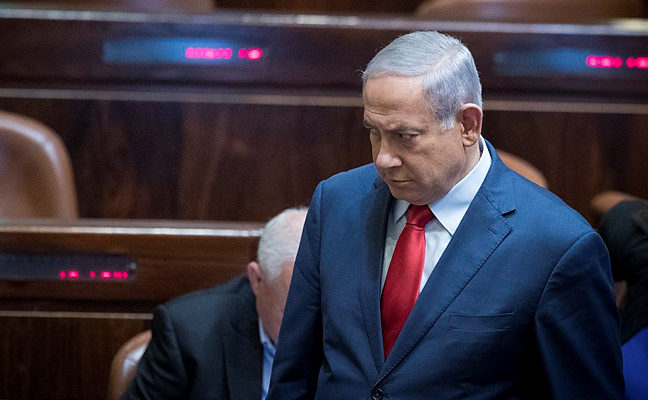According to a poll released Tuesday, Prime Minister Netanyahu would form a coalition of 54 seats in the 120-member parliament without Avigdor Liberman’s party.
By World Israel News Staff
On September 17, Israelis will vote for a new Knesset – just months after Prime Minister Benjamin Netanyahu failed to form a governing majority following April’s election. However, the latest public opinion poll shows that his ability to pull together a coalition may become still more difficult after September.
The Knesset voted to dissolve and call a new election in May when former defense minister Avigdor Liberman refused to join a government headed by Netanyahu, leaving the prime minister with a coalition of only 60 seats in the 120-member parliament.
The poll released Tuesday night by Kan public television, and conducted by the KANTAR polling company, finds that Netanyahu would fare still worse after September’s election, with the ability to cobble together a coalition of only 54 seats. Liberman’s party gains five seats to jump to nine, giving him still more power to decide who will govern.
If the former defense minister throws in his lot with a Likud-led coalition, Netanyahu would have a solid majority with which to govern.
In a Wednesday radio interview with Kan, Liberman said he wanted a broad nationalist government, suggesting he would go with Netanyahu. However, he also said Netanyahu wasn’t a right-wing leader, pointing to the prime minister’s failure to rein in Hamas in the south and his government’s payment of what Liberman termed “protection” money to the terrorist group.
In the April election, Netanyahu’s Likud party and Blue and White, headed by MK Benny Gantz, each won 35 seats. According to Tuesday’s poll, the two would finish in a tie again, but down to 30 seats each.
The poll finds a Gantz-led coalition would reach 57 seats, but only if non-Zionist Arab parliamentary factions are included. These factions have not been represented in Israeli cabinets in the past, though their support has sometimes been enlisted by the government in exchange for benefits provided to the Arab-Israeli population.
Perhaps as a sign of public disgust, or at least apathy amid the political mudslinging, the Kan/KANTAR poll shows a 9 percent decrease in anticipated voter turnout in September compared to a poll taken in the month before the April election.





